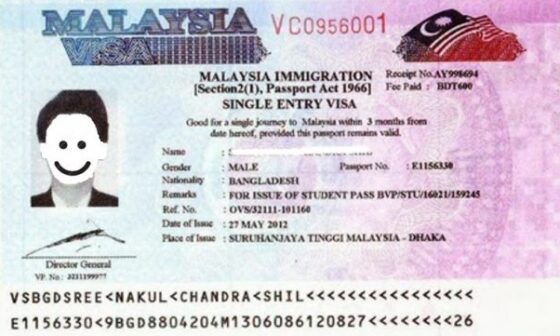Canada offers nursing jobs with visa sponsorship, providing skilled healthcare professionals with a thriving medical environment and high quality of life. With a growing demand for qualified nurses due to the country’s expanding healthcare system and aging population, hospitals and long-term care facilities actively seek internationally trained nurses.
Canada offers competitive salaries, excellent working conditions, and a pathway to permanent residency, making it an ideal destination for immigrant nurses seeking a fresh start.
Entry-Level Skills and Experience Required for Nursing Jobs in Canada
- Education: A diploma or degree in nursing from a recognized institution is mandatory. Many entry-level positions require at least a Bachelor of Science in Nursing (BSN) or equivalent international qualifications.
- Licensing and Registration: Nurses must be registered with a provincial regulatory body, such as the College of Nurses of Ontario (CNO) or the British Columbia College of Nurses and Midwives (BCCNM). International candidates must pass the National Council Licensure Examination (NCLEX-RN) to become licensed.
- Clinical Experience: While some employers may hire fresh graduates, having practical experience, such as internships or clinical placements during your nursing education, is highly valued. Practical experience in settings like hospitals, clinics, or community health centers will be an advantage.
- Language Proficiency: Nurses must demonstrate proficiency in English or French, depending on the province. Passing language proficiency tests like IELTS or CELBAN (Canadian English Language Benchmark Assessment for Nurses) may be required.
- Basic Nursing Skills: Entry-level nurses should be adept at patient care, medical documentation, administering medication, and assisting with medical procedures. Basic knowledge of medical equipment and hygiene protocols is also essential.
- Soft Skills: Effective communication, empathy, teamwork, and the ability to work under pressure are critical in nursing jobs. Nurses must also exhibit strong problem-solving abilities and attention to detail.
Nursing Salary Expectations for Immigrants in Canada
| Province/Territory | Annual Salary (CAD) | Hourly Wage (CAD) |
|---|---|---|
| Ontario | $58,000 – $85,000 | $28 – $42 |
| British Columbia | $60,000 – $90,000 | $29 – $45 |
| Alberta | $70,000 – $95,000 | $33 – $46 |
| Quebec | $55,000 – $80,000 | $27 – $40 |
| Manitoba | $58,000 – $82,000 | $28 – $41 |
| Saskatchewan | $60,000 – $85,000 | $29 – $43 |
| Nova Scotia | $54,000 – $78,000 | $26 – $38 |
Canadian nurses earn competitive salaries based on their province or territory, with Alberta and British Columbia offering some of the highest pay.
Hourly wages range from CAD 26 to CAD 46, with variations based on experience, location, and specialization. Immigrant nurses with licensure and certification can also benefit from similar pay scales.
Companies Hiring Nurses in Canada and Their Requirements for Immigrants
- Fraser Health Authority
- Location: British Columbia
- Fraser Health Careers
- Alberta Health Services (AHS)
- Location: Alberta
- Alberta Health Services Careers
- University Health Network (UHN)
- Location: Ontario
- UHN Careers
- Montreal General Hospital
- Location: Quebec
- Montreal General Hospital Careers
- Winnipeg Regional Health Authority (WRHA)
- Location: Manitoba
- WRHA Careers
General Requirements for Immigrants
- Licensing: Must be registered with the nursing regulatory body of the province (e.g., BC, Alberta, Ontario).
- Language Proficiency: English or French (depending on the province) with IELTS or CELBAN certification.
- Experience: 1-2 years of clinical nursing experience preferred.
- Work Eligibility: Must have a work visa or Permanent Residency in Canada.
How to Apply for Nursing Jobs as an Immigrant in Canada
1. Assess Your Credentials
- Obtain an Educational Credential Assessment (ECA): If your nursing education was completed outside Canada, your qualifications must be evaluated by a recognized Canadian body (e.g., World Education Services or the Canadian Nurses Association). This step confirms that your education meets Canadian standards.
2. Register with the Provincial Regulatory Body
- Each province and territory in Canada has its own regulatory body for nurses. You must be registered with the regulatory body in the province where you wish to work. For example:
- British Columbia: BC College of Nurses and Midwives (BCCNM)
- Ontario: College of Nurses of Ontario (CNO)
- Alberta: College of Registered Nurses of Alberta (CRNA)
- Requirements for registration typically include:
- Proof of nursing education
- Professional nursing experience
- Language proficiency (IELTS or CELBAN for English; French proficiency for Quebec)
- Passing the National Council Licensure Examination (NCLEX-RN)
3. Meet Language Proficiency Requirements
- English or French Proficiency: Depending on the province, you may need to prove proficiency in English or French. Tests like IELTS, TOEFL, or CELBAN (Canadian English Language Benchmark Assessment for Nurses) are commonly accepted.
4. Obtain a Work Visa or Permanent Residency
- Express Entry (Federal Skilled Worker Program): Nurses are in high demand in Canada, making you eligible to apply through the Express Entry system. This program allows skilled workers to apply for permanent residency. After receiving an invitation to apply, you can submit your application for Permanent Residency (PR).
- Temporary Work Visa (LMIA): Alternatively, some employers may offer you a job and sponsor your visa through a Labour Market Impact Assessment (LMIA), which proves that the employer could not find a suitable Canadian worker for the role.
5. Search for Job Opportunities
- Utilize various online platforms and healthcare institutions to find nursing job openings:
6. Prepare a Professional Resume and Cover Letter
- Tailor your resume and cover letter to reflect your skills, qualifications, and experience, focusing on how your background aligns with the Canadian healthcare system.
7. Submit Your Application
- Once you’ve identified job openings that match your qualifications, submit your application through the employer’s portal or the job posting website.
- Ensure all required documents, including your nursing license, work permit, and language proficiency, are included.
8. Prepare for Interviews
- If selected, you may need to attend interviews (virtual or in-person). Be ready to demonstrate your knowledge of Canadian healthcare standards and your ability to adapt to the new work environment.
9. Obtain Work Authorization
- After securing a job offer, your employer may help you with obtaining the necessary work authorization or permit, especially if they are offering visa sponsorship.
10. Complete Additional Training (If Required)
- Some provinces may require you to undergo additional training or a bridging program before you can start working. These programs help align your international education with Canadian nursing practices.
Visa Options and Visa Requirements for Employment
1. Express Entry System (Federal Skilled Worker Program – FSW)
- Overview: The Express Entry system allows skilled workers, including nurses, to apply for Permanent Residency (PR) under the Federal Skilled Worker (FSW) program.
2. Provincial Nominee Program (PNP)
- Overview: Each province in Canada has its own immigration program (PNP) designed to meet regional labor needs. Nurses are often in demand, making this a suitable option.
3. Temporary Work Permit (with LMIA)
- Overview: This route allows nurses to apply for temporary work in Canada if they have a job offer from a Canadian employer willing to sponsor their visa.
4. Atlantic Immigration Program (AIP)
- Overview: This program is for skilled workers moving to Canada’s Atlantic provinces (Nova Scotia, New Brunswick, Newfoundland and Labrador, and Prince Edward Island).
5. Caregiver Program (Home Support Worker Pilot)
- Overview: For nurses looking to work in caregiving roles, the Caregiver Program allows you to apply for Permanent Residency after gaining 24 months of Canadian work experience.
6. Quebec Skilled Worker Program (QSWP)
- Overview: If you intend to work in Quebec, the province has its own immigration program with specific requirements for healthcare professionals.
7. Rural and Northern Immigration Pilot (RNIP)
- Overview: This program is for skilled workers who want to live and work in smaller communities in Canada.
Requirements for employment
- Job Offer: A job offer from a Canadian healthcare employer is required.
- NOC Code: Ensure your nursing occupation is listed under National Occupational Classification (NOC) code 3012 (for registered nurses).
- Education Credential Assessment (ECA): Have your nursing credentials assessed by a recognized Canadian body (such as World Education Services, WES).
- Work Experience: At least one year of continuous, full-time nursing experience.
- Language Proficiency: English (IELTS or CELPIP) or French (TEF Canada) language tests, with a minimum score usually equivalent to CLB 7.
- Comprehensive Ranking System (CRS): Score based on factors like age, education, work experience, and language ability. High scores increase your chances of receiving an Invitation to Apply (ITA) for PR.
- Medical Examination: Nurses must undergo a medical examination to ensure they are in good health and fit for work in Canada’s healthcare sector.
- Police Clearance Certificate: Applicants must provide proof of a clean criminal record from their home country.
- Proof of Funds: For some immigration streams, you may need to show that you have sufficient funds to support yourself and any dependents when you arrive in Canada.
Conclusion
Canada offers nursing jobs through visa sponsorship, providing opportunities for international professionals. With a growing demand for skilled nurses, Canada offers pathways like Express Entry, Provincial Nominee Programs, and temporary work permits.
Meeting specific requirements, including educational credentials, work experience, and language proficiency, provides a supportive work environment, competitive salaries, and a high quality of life.
Related:






